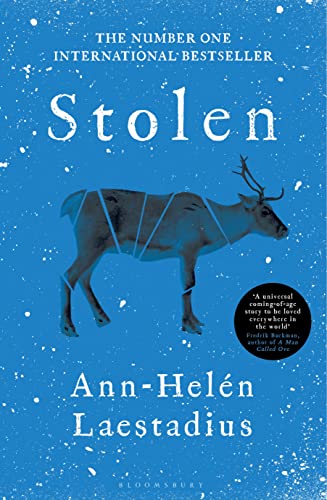
Stolen brings into focus the prejudices and ongoing challenges faced by the Sámi population in northernmost Sweden - and it doesn't flinch in the telling of the story. Cruelty towards the people and their animals and disregard for their culture is not hidden away. Told firstly through the eyes of a young girl, then when that girl is a young woman, the story also gives an insight into how generations deal with persecution.
The notice in the local circular was brief, but no one in the whole municipality missed it. There would be a temporary ban on snowmobiles in the reindeer pasturage, where the pregnant cows need peace and quiet. Just in time for Easter break. It was like dropping a bomb on the community. Each spring, the same old story.
Elsa sat in the car at the gas station; on the radio indignant voices were saying that Easter was ruined. She gripped the steering wheel tight, forcing herself to keep listening.
The municipal commissioner, was on the critics' side. 'Animals are no more important than people, and being able to get out and enjoy nature is a holy thing for our community. Besides, it's more than just a ban on snowmobiles - it's discriminatory that not all Sámi have the right to practice reindeer husbandry and the right to this land. In other words, it's been decided that some Sámi are better than others and those ones get to control everyone else's access to the great outdoors.'
Elsa slapped the steering wheel with both palms. 'And who was it that took away the Sámi's rights? It wasn't us, it was the state! And it's not about pitting animals against people!'